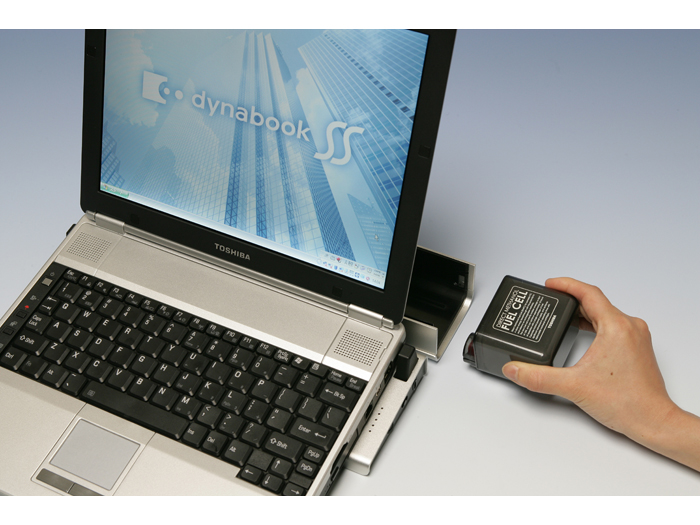Bye bye batteries, hello fuel cells...
Industry group setting the standard for fuel cells

Mobile phones that run for weeks and laptops with batteries that keep going for a full day are finally about to hit the shelves of shops across the world, thanks to a concerted effort by a group of major electronics manufacturers to get the fuel-cell bandwagon rolling.
Working together for the first time, companies like Korea's Samsung, Japan's Toshiba and MTI Micro Fuel Cells of the US are proposing a set of standards to define how fuel cells should be made and refilled. The result should see commercial products from as early as next year.
One standard to rule them all
According to Japanese newspaper the Nikkei [Subscription link], the group is about to register its proposed standards with the International Electrotechnical Commission, thereby creating "the de facto global standard for electronic device fuel cells."
The simple matter of clarifying exactly what constitutes an approved fuel cell should be enough to get other manufacturers moving, as it will enable worry-free investment in production equipment and clearer planning.
Ultimately, the cost of making fuel cells will drop and they will replace normal lithium-ion batteries, giving a far longer running time to all our gadgets. Better yet, cutting out mains electricity means a big reduction in carbon emissions when powering portable devices - possibly by as much as half when compared to present rates.
Sign up for breaking news, reviews, opinion, top tech deals, and more.
J Mark Lytle was an International Editor for TechRadar, based out of Tokyo, who now works as a Script Editor, Consultant at NHK, the Japan Broadcasting Corporation. Writer, multi-platform journalist, all-round editorial and PR consultant with many years' experience as a professional writer, their bylines include CNN, Snap Media and IDG.